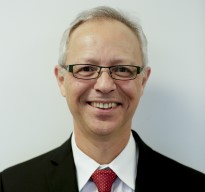
This (PVT) class will focus on the advanced and key topics of reservoir fluid properties, fundamentals, practical measurements and workflows. In the class, we will emphasize use cases and various examples including modern PVT report reviews as well as the key use-case related elements of equation of states (EOS s) that are often shared in our industry, especially in relation to reservoir models and other tools that use the PVT data. In addition, we will give a broad view of the new developments in all elements of the development cycle, including exploration, reservoir and production management, EOR/IOR and even CO2 sequestration. As the complexity of fluids and the reservoir conditions become more challenging, progress in the computational area is also being made, such as, new EOS models and computational techniques, advanced characterization methods, etc. Therefore, complex fluids and their implications will be inherently part of this class. One of the new topics that we will also introduce is the use of data-centric/machine learning methods in the area of hydrocarbon fluid properties
Course Objectives:
Objective is to enable the participants with the following skills:
General Objectives (repeated in the value statement as well):
After the course we expect the participants:
Intermediate to Advanced
They can use the outcome/learnings right away for their day to day work. In addition, the justification for the data acquisition and/or filling the gaps in the data and being able to assess the current and future needs will be quick wins for the participants. In addition, we will share info on the new progress made in various fronts in this line of business.
After the course we expect the participants:
As PVT is one of the pillars of Petroleum Engineering however the below individuals will benefit the most from the course:
Attendees will receive 1.6 CEUs for attending this 2-day course.
All cancellations must be received no later than 14 days prior to the course start date. Cancellations made after the 14-day window will not be refunded. Refunds will not be given due to no show situations.
Training sessions attached to SPE conferences and workshops follow the cancellation policies stated on the event information page. Please check that page for specific cancellation information.
SPE reserves the right to cancel or re-schedule courses at will. Notification of changes will be made as quickly as possible; please keep this in mind when arranging travel, as SPE is not responsible for any fees charged for cancelling or changing travel arrangements.
We reserve the right to substitute course instructors as necessary.

Dr. Birol Dindoruk is currently American Association of Drilling Engineers Endowed Professor of Petroleum Engineering at University of Houston, previously he was the Chief Scientist of Reservoir Physics and the Principal Technical Expert of Reservoir Engineering in Shell focusing on areas of Fluid Properties and CO2/Gas Injection Processes.
His technical contributions have been acknowledged with many awards during his career, including SPE Lester C. Uren Award (2014), Cedric K. Ferguson Medal (1994), and Distinguished Membership. In 2017, he was elected as a member of the National Academy of Engineering for his significant theoretical and practical contributions to enhanced oil recovery and CO2 sequestration.
He was one of the Distinguished Lecturers of SPE for 2010-2011 term.
Dr. Dindoruk was a Data Science and Engineering Analytics Technical Director of the SPE and a member of the Advisory Committee of the SPE Reservoir Dynamics and Description Technical Discipline. He has been active in various editorial positions under SPE and also Elsevier. Currently he is the Editor In Chief for all SPE Journals and as well as Editor In Chief of Journal of Natural Gas and Engineering of Elsevier.
Dr. Dindoruk is well-known for his extensive work on thermodynamics of phase behavior/EOS development and experimental work, interaction of phase behavior and flow in porous media, enhanced oil recovery and CO2 sequestration, and correlative methodologies.
Recently, Dr. Dindoruk has also been working in the area of data analytics, artificial intelligence, and machine learning and focusing on effective incorporation of data sciences into the oil and natural gas industry practices and energy systems. In recent years, he has authored/co-authored various articles for hydrogen, geothermal systems and adsorptive storage.
Dindoruk has 28 years of industrial experience, holds a BSc Degree from Technical University of Istanbul in Petroleum Engineering, MSc Degree from The University of Alabama in petroleum engineering and also a PhD from Stanford University in Petroleum Engineering and Mathematics, and an MBA from University of Houston.
Concept of gas injection and what miscibility means and not.
Gas flooding involves many aspects of engineering, from surface facilities to production engineering to reservoir engineering. There are also newer theories and their applications, especiall.
Disciplines: Production and Operations | Projects, Facilities, and Construction | Reservoir